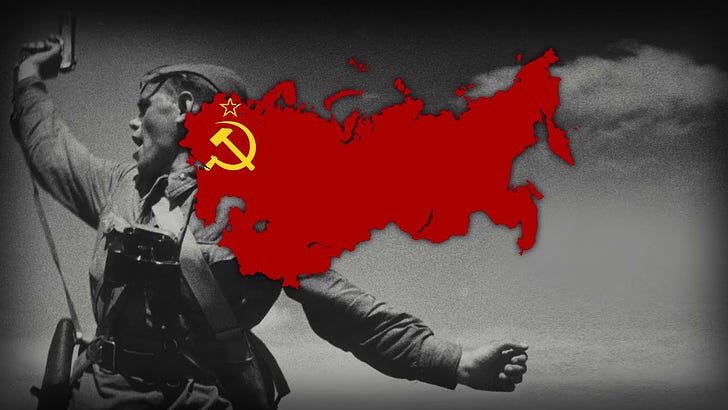Hope and despair, as Russia celebrates Victory Day
The degree of the societal divide over the war in Ukraine is at a record level, with parents' ideals and beliefs clashing with their children’s ideas and aspirations.
It is 7 am and the blue skies are shaken by fighter jet engines hovering over the city of St. Petersburg, known to many as Leningrad — the heroic city that stood a 872-day siege (September 8, 1941–January 27, 1944) by German and Finnish armies during World War II. It is 9th May, and the Victory Day celebrations are to begin in a few hours.
The siege of Leningrad claimed the lives of 600,000 to 1.5 million residents of the then 3-million city (5.3 million as of 2021), according to various estimates. Only a tiny fraction of them died from Nazi bombing, over 95% have died from hunger. When the food supplies ran out, people turned to wallpaper glue, leather belts and shoes, dogs and even people’s corpses. This city, whose many historical buildings still wear the scars left of Nazi shelling, knows the cost of not being defeated. And this is the city whose people, old and young, question the costs modern Russia needs (or chooses to?) pay to not be defeated.
Today, on 9th May, Russia celebrates Victory Day, commemorating Soviet Union’s victory over Nazi Germany in World War II. “The Great Patriotic war”, as it was referred to in the Soviet Union and then Russia. The “sacred war”, as a popular national song goes, left many scared in every family’s history.
The Soviet Union lost anywhere between 25 to 40 million in the 1418 days (3 years and 10 months) war that has shaped the nation’s identity — a complicated animal in itself, since “the nation” then included russians, belorussians, ukrainians, kazakhs, tajiks, uzbeks and many more.
The V-day has always been the day of remembrance, silent solidarity, and prayers for “peaceful skies”. The day when people lay flowers at the eternal flame memorials, watch heartbreaking Soviet movies and sometimes military parades — that over the years were turned into a show of power and capabilities.
This year’s Victory Day celebrations are shadowed (or fueled, for some), by an ongoing full scale “special military operation” in Ukraine, that the Kremlin refuses to call war, which in the last two months lead to thousands of deaths among military personnel and civilian population.
The war in Ukraine has led to an unprecedented crack in Russia’s society. And probably for the first time the V-day celebrations are willingly boycotted by many Russians, despite how precious and sacred this day is for each and every one here.
The collective west has been pushing the idea of 9th May as a symbolic deadline by which Russia will have to deliver some results in the ongoing operation in Ukraine. It has made all sorts of predictions of what Russian president Vladimir Putin, who is personally blamed for invading Ukraine, could announce in his address to Russians on this day — a full scale war with mass mobilization, or “some kind of victory” in the ongoing “operation”, or his clear intention to go – or not to go – nuclear.
In his address to the leaders and people of Azerbaijan, Armenia, Belarus, Kazakhstan, Kyrgyzstan, Moldova, Tajikistan, Turkmenistan, Uzbekistan, Abkhazia, South Ossetia, the Donetsk People's Republic, the Lugansk People's Republic, as well as the peoples of Georgia and Ukraine, on May 8, Putin mention “common duty” to prevent the revival of Nazism, and the need to preserve “common spiritual values and traditions of fraternal friendship”.
But his address to people at home has to be far more convincing. Many of those who have supported the “special operation” to demilitarize and denazify Ukraine when it was announced by Vladimir Putin on February 24, have quite lost the track. The political and military leadership of Russia has never been clear about its actual goals, as well as the costs at which Moscow is ready to gain whatever it is trying to gain. The ongoing war, unlike the one in 1941-1945 has not become a “sacred” war, and is unlikely to become such.
The latest poll by VCIOM shows Putin’s approval rate stood at 78.9% (+1.2 percentage points in the period from April 25 to May 1, 2022). The same polling agency which is known to be biased towards the Kremlin in March reported 76% of Russians supported “special operation”. However, one should treat such polls with special attention considering the pressure on freedom of speech and public dissent in Russia, with sentences of up to 15 years in prison.
Another poll, by independent Levada Center, found that 82% of Russians are concerned by the military campaign in Ukraine, with the vast majority of them (47%) worrying about the deaths of civilians and Russian soldiers, along with the devastation and suffering. Only 6% of those concerned by the war said they were bothered by the alleged presence of Nazis and fascists in Ukraine, despite that VCIOM polls show 76% Russians believe Ukrainian Nazi organizations pose a threat to Russia and Russian citizens (76%).
As tricky as reading the polls can be, the degree of the societal divide over Ukraine is at a record level, with parents' ideals and beliefs clashing with their children’s ideas and aspirations. As millions pour into the streets of Russian cities to gaze the military parade, or join the Immortal Regiment march carrying pictures of their Russsian and Ukrainian grandfathers who fought shoulder to shoulder in the Great Patriotic war, of their husbands and sons who perished in the ongoing war in Ukraine that few would dare to call “great”, the president’s speech will be listened to with a great attention, and hope.


